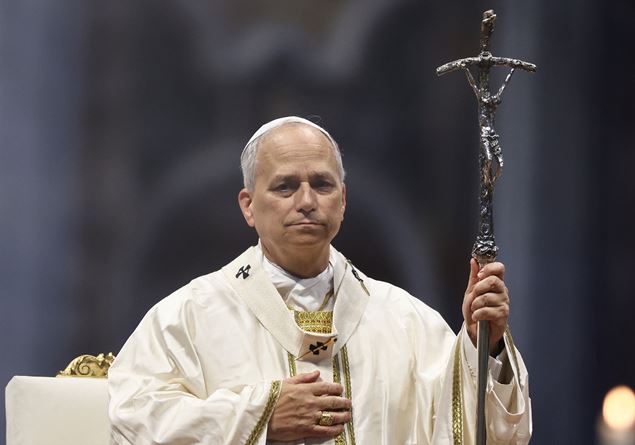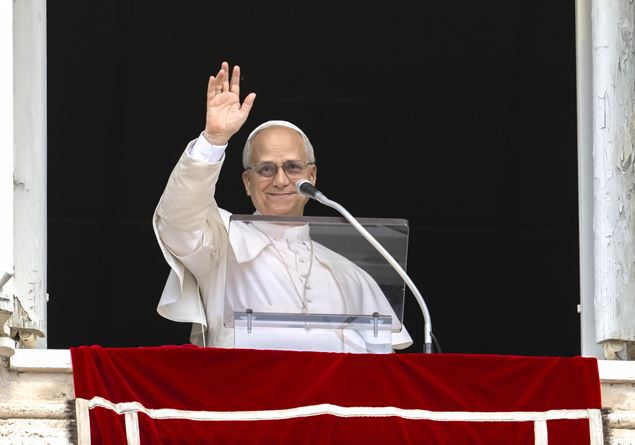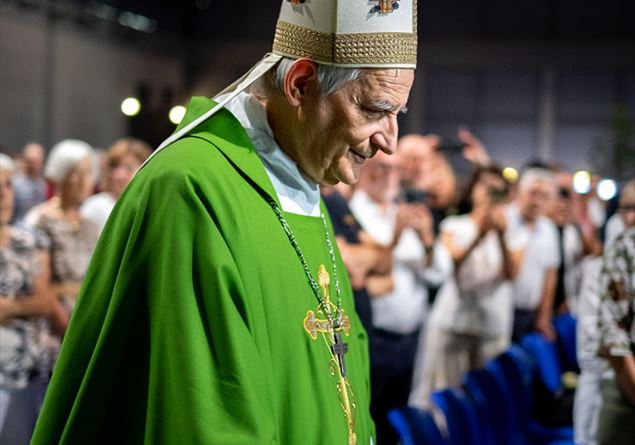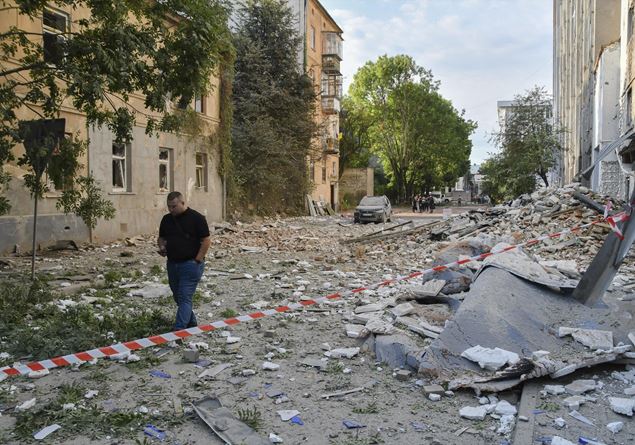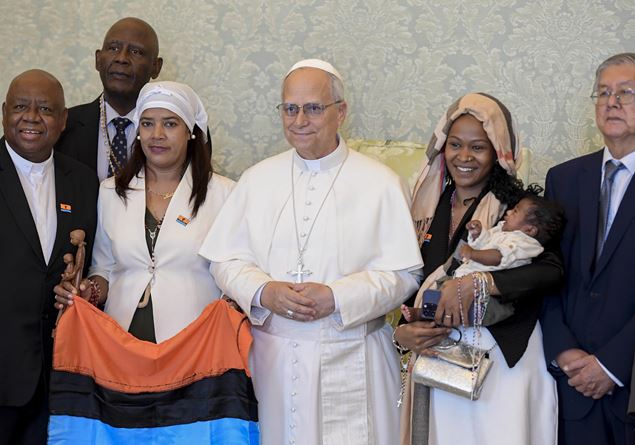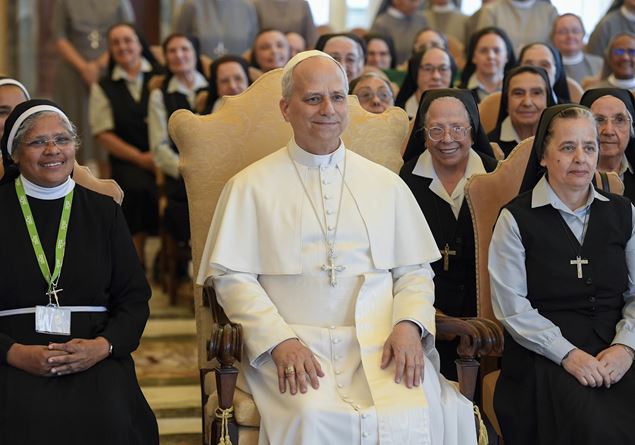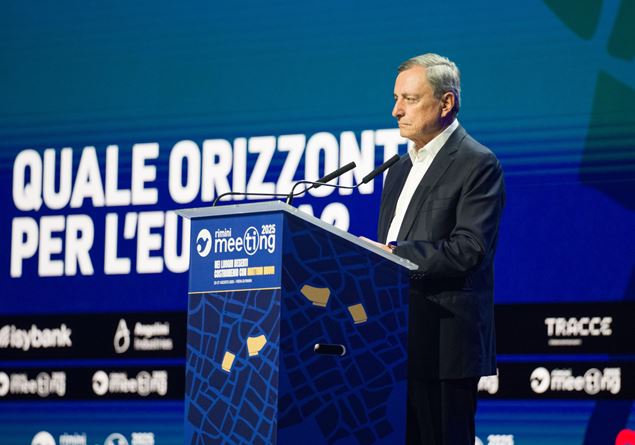Thousands of large and small and world -renowned athletes and amateur athletes, Olympic and sporty golds on Sundays, have reached thousands.
They fill the Basilica of San Pietro, after the torrid heat recommended to move the celebration from the churchyard inside. Pope Leone welcomes them on the day in which the Holy Trinity. And, even if, as he himself recalls, “the Trinity-Sport binomial is not exactly in common use”, he explains that “the combination is not out of place” because “every good human activity brings in itself a reflection of the beauty of God, and certainly sport is among these”.
After explaining that “God is not static, it is not closed in itself. It is communion, a living relationship between the Father, the Son and the Holy Spirit, who opens up to humanity and the world. Theology calls this Pericorese reality, that is, “dance”: a dance of mutual love “, and that Some Fathers of the Church speak of a “Deus Ludens, of a God who has fun”, underlines that precisely for this reason “sport can help us meet God Trinity: Because it requires a movement of the ego towards the other, certainly external, but also and above all inner. Without this, it is reduced to a sterile competition of selfishness ».
Remember the verb which, in Italian, is used to encourage the altletes: “Come on!” A “beautiful imperative: it is the imperative of the verb” to give “. And this can make us think: it is not just a matter of giving a physical performance, perhaps extraordinary, but of giving yourself, of “playing oneself“. It is a question of giving themselves for others – for their growth, for supporters, for loved ones, for coaches, for collaborators, for the public, even for the opponents – and, if you are truly sporty, this applies beyond the result”. Cita Giovanni Paolo II, who, as a sportsman, said that “sport is a joy of living, game, party, and as such must be valued (…) through the recovery of its ability to make its ability to make its ability to make Vincolcoli of friendship, to encourage the dialogue and opening of each other, (…) above the harsh laws of production and consumption and any other purely utilitarian and hedonistic consideration of life ».
Sport, insists Prevost, has three aspects that make it «A precious means of human and Christian formation. First, In a society marked by solitude, in which exasperated individualism has moved the center of gravity from the “we” to the “I”, ending up ignoring the other, sport – especially when it is team – teaches the value of collaboration, of walking together, of that sharing that, as we have said, is at the very heart of the life of God». And therefore “it can thus become a tool Important of recomposition and meeting: among peoples, in communities, in school and work environments, in families! “
Also, in one «Increasingly digital society, in which technologies, while approaching distant people, often remove those close to, sport enhances the concreteness of being together, the sense of body, space, fatigue, of real time. Thus, against the temptation to escape into virtual worlds, it helps to maintain healthy contact with nature and with concrete life, a place where love is practiced “.
Finally, in a “competitive society, where it seems that only the strong and winners deserve to live, sport also teaches to lose, by comparing man, in the art of defeat, with one of the deepest truths of his condition: fragility, limit, imperfection. This is important, because it is from the experience of this fragility that we open to hope. The athlete who never makes mistakes, who never loses, does not exist. The champions are not infallible machines, but men and women who, even when they fall, find the courage to get up ». In this sense, he repeats with the words of John Paul II “Jesus is” the true athlete of God “, because he has won the world not by force, but with the loyalty of love”.
And it is no coincidence that “In the life of many saints of our time, sport has played a significant role, both as a personal practice and as a way of evangelization. Let’s think of Blessed Pier Giorgio Frassati, patron of sportsmen, who will be proclaimed Saint on September 7th. His simple and bright life reminds us that, as nobody was born champion, so nobody was born saint. It is the daily training of love that brings us closer to the definitive victory and that makes us capable of working on the construction of a new world “.
Paul VI also knew so when he remembered in the hearing at the Italian sports center “twenty years after the end of the Second World War” as “sport had contributed to bringing peace and hope into a society shocked by the consequences of the war”. Paul said: “It is the formation of a new society, to which your efforts are addressed: (…) In the awareness that sport, in the healthy training elements that it supports, can be very useful for the spiritual elevation of the human person, First and indispensable condition of an orderly, serene, constructive society ».
For this lIn Church, he concludes, “entrusts you with a beautiful mission: to be, in your activities, reflection of the love of God Trinity for your good and brothers. Let yourself be involved in this mission, with enthusiasm: as athletes, as trainers, as companies, as groups, as families. Pope Francis loved to emphasize that Mary, in the Gospel, appears to us active, in motion, even “racing”, ready, as mothers know, starting with a nod of God to help his children. We ask her to accompany our efforts and our momentum, and to always orient them at best, until the greatest victory: that of eternity, the “infinite field” where the game will no longer have fine and the joy will be full ».





